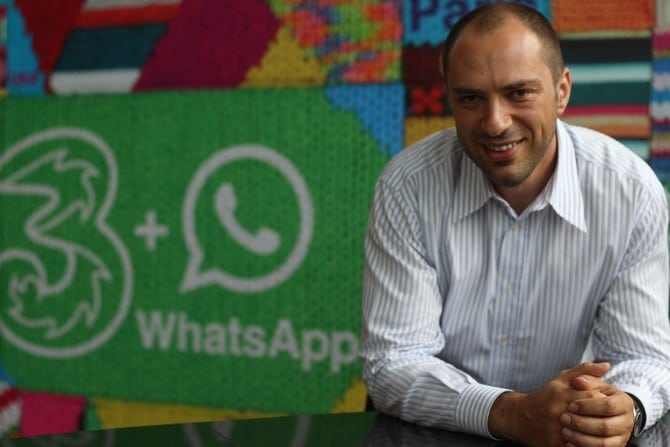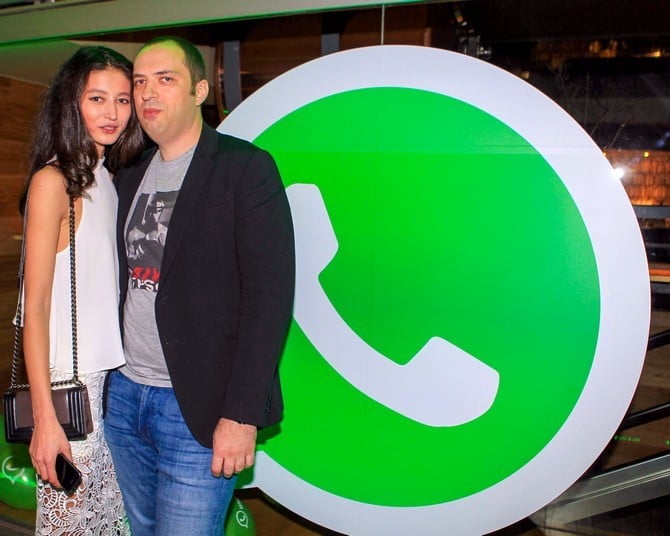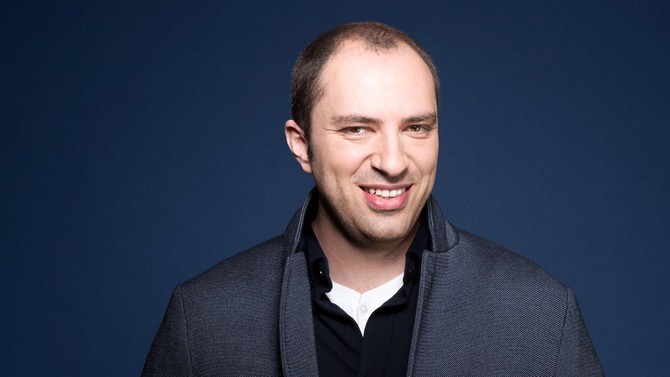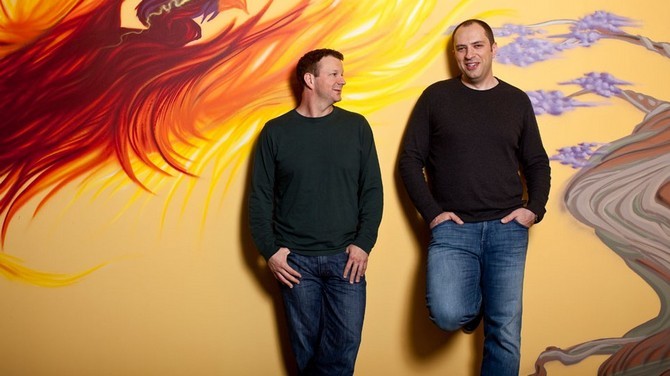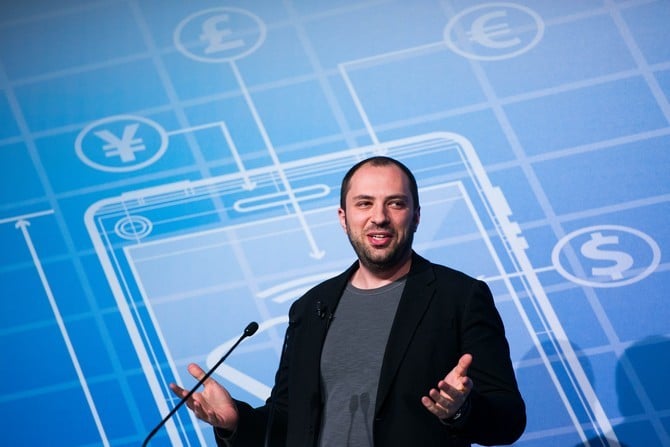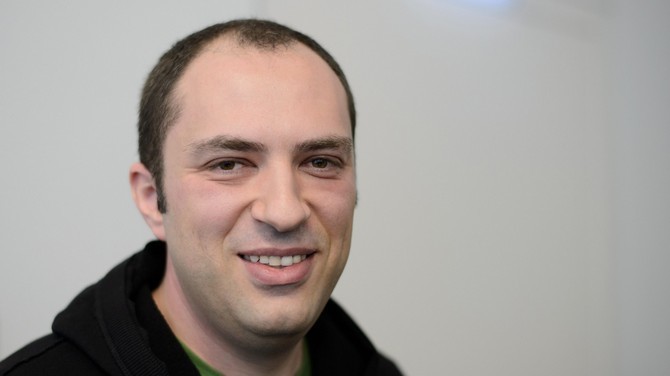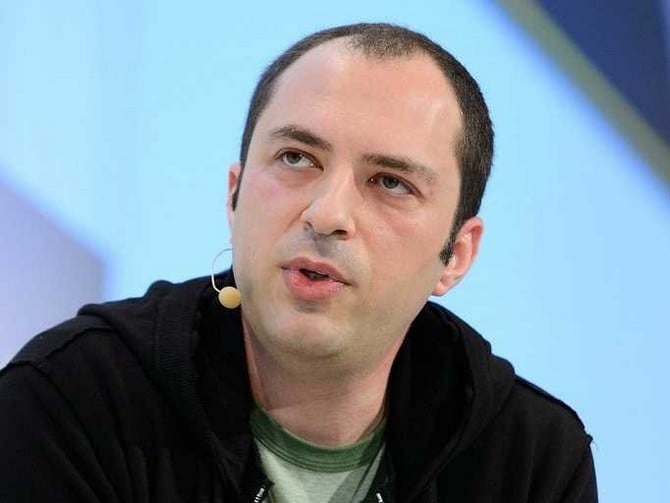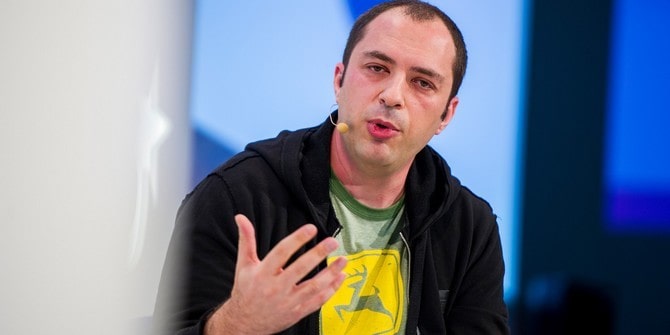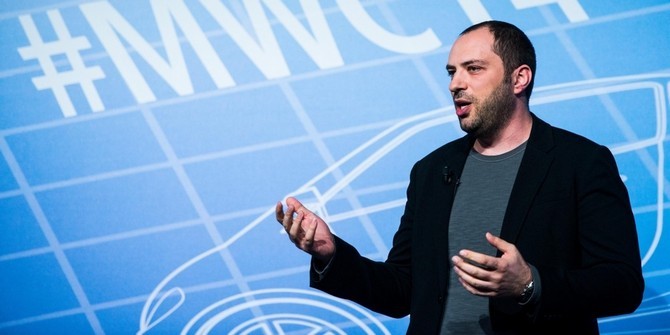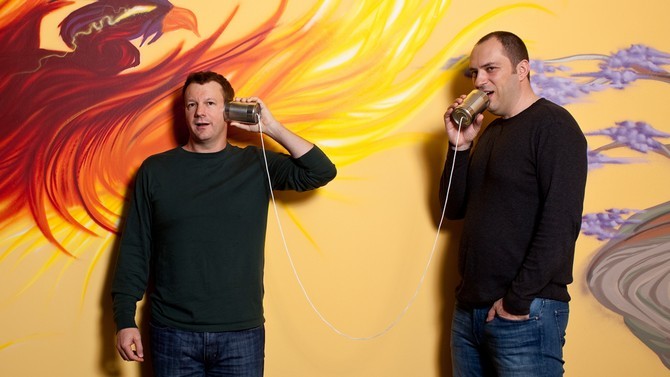Born on the 24th of February 1976 in Kiev, Ukraine, Jan Koum grew up in the Fastiv area outside of the capital and in 1992 he moved to California with his mother and grandmother due to the complex political events in the country at the time.
Jan remembered that his mother stuffed the suitcases with pens and notebooks to avoid paying the school supplies in the US. Settling in Mountain View, he was raised with the aid of a social support program that allowed the family to live in a two bedroom apartment. He was 16 at the time and his father was still in Ukraine, with the plan of joining them later, although he never did.
The mother worked as a babysitter and he was cleaning at a grocery store, starting to become interested in programming from the age of 18. He jokingly said that “I didn’t have a computer until I was 19 – but I did have an abacus” and he taught himself about computer networks through manuals from a used book store, He joined a hacker group called w00w00, meeting the founders of companies like Napster, Shawn Fanning or Jordan Ritter here.
This made him enroll in the San Jose State University and at the same time he was working as a security tester for Ernst & Young, but he was more interested in work than in studying, since he was learning all he needed to know from the hacking community so he dropped out before graduating.
A problem arose in February 1996 when he had a fight with his girlfriend at the time and a restraining order was granted against him from the state court in San Jose, after he verbally and physically threatened her. Several years later, (in 2014) he recalled the event and said “I am ashamed of the way I acted and ashamed that my behavior forced her to take legal action.”
He was hired as an infrastructure engineer in 1997 at Yahoo after he met Brian Acton when working at Ernst & Young. Brian and Jan got along really well from the first moment and he recalls that “neither of us has an ability to bullshit”. This was the year when his father died, back in Ukraine, while his mother would die of cancer in 2000.
He spent the next nine years working at Yahoo until September 2007 when he decided to take a year off and visit South America along with his friend Brian. They also played a lot of ultimate Frisbee at the time, making Jan feel less alone after the death of his mother.
Jan wanted to work at Facebook but wasn’t selected and when he bought his iPhone in 2009 he realized that the device and its App Store would require an entire new industry of apps. He and his friend Alex Fishman started talking about possible apps in his kitchen, over tea and they came up with the name WhatsApp at the time.
A week later WhatsApp Inc. was incorporated in California, on February 24, 2009, when Jan was celebrating his 33rd birthday. The $400,000 he saved while working at Yahoo was sufficient to create the company. The app needed an iPhone developer and Fishman introduced Koum to Igor Solomennikov who was contacted via RentACoder.com. “Jan was showing me his address book. His thinking was it would be really cool to have statuses next to individual names of the people”, recalls Fishman.
The purpose of the app was to serve as a mobile messaging application operating under a subscription business model. The app was cross platform and it uses the Internet to send text messages, images, video, user location and audio media messages. It took a while for the app to take momentum and Jan was close to quitting, but Acton urged him to “give it a few more months.”
The flexibility and great functionality made the app extremely popular and when Apple launched the push notifications in June 2009, Koum updated WhatsApp to version 2.0 with messaging features, leading to the increase of users to 250,000. This allowed the status of each user to be changed, so that each friend in the network would be pinged when you wrote something like “at the gym”.
This is when Acton, who was managing a startup that proved unsuccessful, decided to join the company and by October he convinced five friends that were former Yahoo employees to invest $250,000 in seed funding. Koum made Acton co-founder of WhatsApp when he officially joined on November 1, 2009.
Another old friend of Jan Koum, Chris Peiffer, joined the team to help create a BlackBerry version of the program and the overwhelming popularity transformed WhatsApp from a free to a paid service. By December 2009 photos could be sent and in 2011 the app was already in the top 20 store.
Sequoia Capital invested an additional $7 million and the users reached 200 million in February 2013, with only 50 employees running the company, so Sequoia added $50 million more to their investment leading to the company being valued at $1.5 billion.
In February 2014 Koum agreed to sell WhatsApp to Facebook for the sum of $22 billion in cash and stock, joining the board of the company after the sale. This was the largest Internet acquisition in over a decade and propelled Jan into the world of billionaires.
Jan donated $1 million to the FreeBSD Foundation in November 2014 and almost $556 million to the Silicon Valley Community Foundation during the same year. Today Jan Koum is worth $7.1 billion according to Forbes and is still single.
The user base kept expanding, with 400 million users by December 2013, 500 million by April 2014 and by January 2015 the milestone of 700 million monthly active users was reached, predicting to expand even further at the expense of the telecommunications industry. Financial Times said about the app that it “has done to SMS on mobile phones what Skype did to international calling on landlines.”

